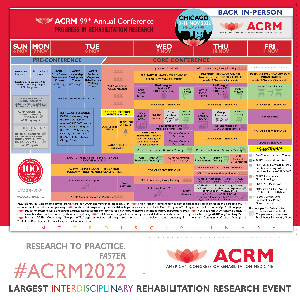Back
Symposium
Pediatric Rehabilitation
Cardiopulmonary Rehabilitation
Caregiver Needs
The Pediatric Cardiac Rehabilitation Conceptual Framework: An evidence-base approach to functional assessment
Tuesday, November 8, 2022
12:45 PM – 2:00 PM
.jpg)
Stefanie C. Rogers, OTR
Occupational Therapist
Children's Health
Colleyville, Texas, United States
Presenter(s)
Children diagnosed with pediatric heart conditions are a rapidly expanding patient population that physical therapists, occupational therapists, and speech-language pathologists encounter in acute care, post-acute rehabilitation, home health, and outpatient settings. There is growing evidence that children diagnosed with heart conditions have a range of functional challenges beyond cardiopulmonary efficiency. Further, parents of children with heart conditions face unique caregiving challenges. This symposium will help rehabilitation therapists understand more about the unique rehabilitation needs of these children and their caregivers. Participants will explore domain-specific challenges and functional outcomes using the new Pediatric Cardiac Rehabilitation (PCR) Conceptual Model Framework. Further, we will explore evidence-based assessments and protocols to guide intervention strategies that combine a habilitative, rehabilitative, and cardiopulmonary approach to care. Participants will come away with a better knowledge of this growing population and the exciting role that all rehabilitation professionals play in optimizing resiliency, self-advocacy, and adaptation.
Learning Objectives:
- Define domain-specific functional challenges of children diagnosed with congenital and acquired pediatric cardiac diagnoses.
- Describe the added roles and challenges that caregivers of children diagnosed with heart conditions experience.
- Choose specific standardized and non-standardized assessments and interventions to grow their practice when working with both caregivers of and children diagnosed with pediatric heart conditions.
- Know how to seek community and peer-support resources for caregivers of and children diagnosed with pediatric heart conditions.

.jpg)
